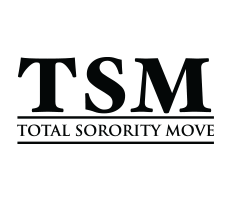Facebook: the social media site that people my age get weirdly territorial about. I can’t count the number of friends who have told me they’re actually angry about what Facebook has turned into, and that they want to deactivate their accounts because the exclusivity is gone. They never end up going through with it, but it’s amazing how many people truly hate that Facebook dropped the university email address requirement. I guess they’re just perplexed that the executives at Facebook like money. What most of these complainers don’t realize is that Facebook has followed the arc of pretty much every popular Internet site. The story always goes in a form similar to this: exclusivity, which breeds popularity, which hits a zenith, which results in oversaturation. It’s the Circle of Online Life. (Elton, get on that remix!) It happened to Myspace and Facebook, and now it’s starting to happen to Twitter and Reddit. But instead of whining about it, let’s take a walk down memory timeline.
Stage 1: Pre-College (Exclusivity)
You received your college email address at the tail end of your senior year, and what was the first thing you did? Register for classes? Hell no. Facebook was the cool thing the college kids were doing, and you have access now! You made your page, added any older friends who were already in college, and any of your high school buddies who were smart enough to apply for college early. Your news feed (this is pre-timeline, obviously) was awesome, because you’d never seen anything like it. Instead of each profile standing on its own and having to hop around, stressing about everyone’s “Top Eight,” everything was in one place. All of your friend’s updates and activity popped up in your feed. You thought that this was a glimpse of what college life was like. All through the summer, you logged on to check your news feed to see what your older friends were saying. Instead of asking them what school was like when they visited for breaks, you got to see it unfold in real time. Pictures, status updates, messages-they were all there, and it was glorious.
Stage 2: Early College (Popularity)
Facebook was the perfect tool to meet people when you first got to college. When I say people, I mean girls. I wasn’t sending messages to random bros who had the same list of bands and movies I liked, because that would have been weird. However, I had no problem hitting up basically every girl in my incoming class in a span of a few months. I even thought I was being clever by creating a standard introductory message with a joke and a question, not realizing that the concept of copy and paste was ancient at this point. Did I ever get called out on it? Absolutely. Did it work? Well, kind of, if I’m being honest. I got several “let’s get coffee at the Starbucks in the library” dates out of that, and even a couple of minor hookups. Look, we were all new to it at the time. Girls had just as little experience with Facebook as the rest of us, so the idea of randomly getting a message from a funny, seemingly harmless guy hadn’t gotten the point of being annoyingly creepy yet. I won’t lie, I went back about a week ago and read a bunch of the messages I sent to girls as an 18-year-old, and I’m not sure if I’ve ever cringed harder. It’s brutal stuff. Facebook did not do me a favor by hanging onto those.
But let’s not pretend like I was the only guy trying way too hard on Facebook. My roommate just admitted to me yesterday that he knows for a fact you could run out of “pokes” because he literally got a message from Facebook telling him to cool it with the poking.
Stage 3: Late College (Zenith)
Facebook had been with us since the beginning, and we didn’t have any concept of college without it. It had always been with us, but by this point, the shine had worn off. We used it less for flirting and seeing what our friends were doing and more for uploading pictures and getting groups together for events and class projects. It became more of an organizational tool than a social one. Sure, you’d Facebook chat with you friends at other schools (because you had Facebook chat now) but it wasn’t the bold, new frontier it once was. It was also around this time Facebook dropped the university email requirement and the demographics changed. First the high schoolers, then the 30-somethings, and then your parents joined. Once I got a friend request from my dad (which I ignored for six months) I knew it was all over. I graduated college the year that the Timeline was introduced.
Stage 4: Postgrad (Over-Saturation)
Some of us are still hanging around on the ol’ Facebook. Like I mentioned in my piece about people who haven’t gotten over college, I’d probably get off of Facebook if I weren’t so lazy about downloading pictures. Plus it’s an easy way to stay in contact with aunts and uncles who I previously would have to either call on the phone or get a lecture from them about staying in contact at family get togethers. By the way, that’s so hilariously the opposite of what we used Facebook for when we first got on that it’s hard to really comprehend.
But unlike others my age, I’m not upset about it. I actually love that I was of the age to go to college in the popular window of Facebook. In a weird, nerdy way, it was something like being a teenager when The Beatles came to America, or seeing “Terminator 2″ in theaters in your early twenties (except I would’ve much rather done those things). We were at the perfect age to witness something magical happen. For the span of a few years, this little website changed the way we interacted with each other and presented ourselves to the world. Even though it’s past its prime, we still have both fond and cringe-inducing memories for what it once was.
Now go like my Instagram pictures, jerks.





I miss the days where I would trade a spot on my Top 8 for BJ’s back in high school.
If only it was that easy now.
Props for literally the sketchiest PGP comment of all time.